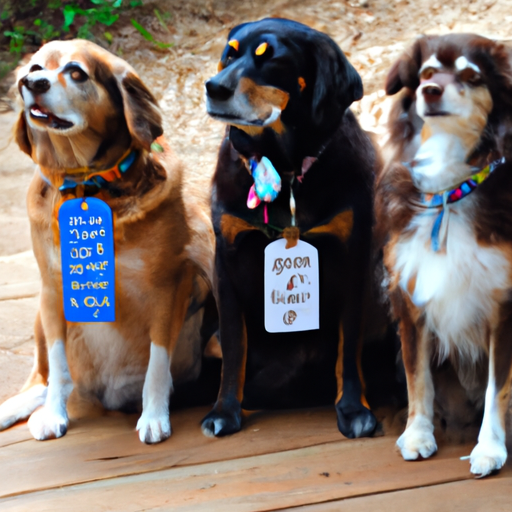As a caregiver, choosing a name for your new canine companion can be a joyful yet challenging process. It’s a decision that can reflect your personality, your dog’s appearance, or even your favorite book or movie character. In this detailed guide, we will explore the different factors to consider when picking the perfect name for your furry friend.
1. Understand the Importance of Your Dog’s Name
The first thing to understand is the importance of a dog’s name. It’s not just a label but a tool for communication and relationship-building. Dogs react to the sound and tone of their names. The right name can help in training and getting your dog’s attention quickly.
For example, a name ending in a vowel sound might be easier for a dog to distinguish from ambient noise. So, consider the audibility and distinctness when choosing your dog’s name.
2. Reflect Your Dog’s Personality
Your dog’s personality can be a great inspiration for a name. Is your dog playful and energetic, or calm and dignified? Does it have a unique trait or behavior? Spend some time observing your dog’s personality. This connection can make the name more meaningful and suitable.
3. Match the Name with Your Dog’s Appearance
Physical characteristics can also be a basis for your dog’s name. For instance, a name like “Fluffy” would suit a dog with a thick, soft coat, while “Spot” might be ideal for a dog with distinctive markings.
4. Cultural and Pop Culture References
A lot of dog owners turn to pop culture for inspiration. Names from movies, books, cartoons, or even famous personalities can make your dog’s name fun and unique. Just make sure it’s a name you’ll enjoy calling out in the park!
5. Respect the Dog’s Heritage
If your dog is a specific breed with a strong heritage, you might want to consider a name that reflects that. For instance, a German Shepherd might suit a German name like “Fritz,” while a French Bulldog could carry a French name like “Belle.”
6. Consider Future Training
Remember that you’ll be using your dog’s name a lot in training. Choose a name that is easy to say and one that your dog can easily recognize.
Here’s a simple table to illustrate some suggestions:
| Name Category | Examples |
|---|---|
| Short Names | Max, Bella, Coco |
| Personality based | Jolly, Bouncer, Snuggles |
| Appearance-based | Fluffy, Spot, Goldie |
| Pop culture references | Dobby, Elsa, Simba |
| Heritage-based | Fritz (German), Belle (French), Hiro (Japanese) |
7. Involve the Family
Involving your family in the naming process can make it even more special. It can be a fun activity where everyone gets to suggest their favorite names. Make sure the name chosen is agreed upon by everyone.
8. Take Your Time
Finally, there’s no need to rush the process. Sometimes, the perfect name takes a little time to emerge. Spend some time with your dog, get to know its behavior, its quirks, and the name might just come to you.
Frequently Asked Questions
Q: How long should my dog’s name be?
A: Short names are usually better because they’re easier for your dog to recognize and for you to call out.
Q: Can I change my dog’s name if it doesn’t respond to it?
A: Yes, you can. It might take some time for your dog to get used to the new name, but with consistency, it should start responding to it.
Q: Is it okay to use a human name for my dog?
A: Absolutely! Many pet owners give their dogs human names. It’s all about choosing a name that you love and feel fits your dog.
Q: Can I name my dog after a famous person or character?
A: Yes, many people name their dogs after their favorite characters or celebrities. It’s a fun way to showcase your interests through your pet’s name.
Remember, the perfect name for your dog is one that you love and that your dog responds to. It’s a personal choice and a wonderful way to express your bond with your furry friend. Happy naming!



